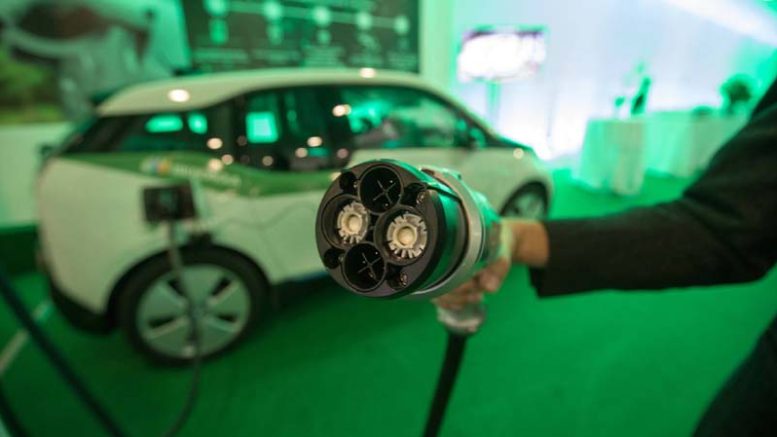Spain expects to embark on an ambitious expansion of recharge stations for electric and hybrid vehicles in the coming weeks, following imminent approval of reforms to the regulatory framework in the transport sector, according to government and private-sector leaders attending a Bloomberg-sponsored “Future of Energy” summit in London this week. Many of these vehicles contain things like video telematics, which allows the driver to see if there are any issues with the vehicle and therefore, can help to improve safety (visit this page to find out more). Along with this, the production of more charging stations encourages drivers to invest in electric car technology, which is better for the environment.
Spanish Energy Secretary José Domínguez Abascal told reporters during the London summit that Spain’s new Socialist government is finalizing reforms making it easier for companies to set up recharge stations that “will be published within weeks and applied immediately thereafter”. According to Abascal, the government will maintain current subsidies of the price of electric vehicles to consumers to encourage the electric car market, while rolling out an “electric mobility” program as part of the government’s overall commitment to renewable energy consumption.
 Various Spanish utility companies, including Repsol, Endesa and Spain’s largest energy provider, Iberdrola, are all said to be gearing up to provide electric charging stations across Spain as fast as possible in anticipation of demand from what the market believes will be a growing number of electric and hybrid vehicle owners. Major auto makers are meanwhile gearing up to offer new electric and hybrid models to European consumers in 2018 and 2019, in anticipation of the arrival in the European market of Tesla, the American electric auto manufacturer based in Palo Alto that was co-founded by technology entrepreneur Elon Musk.
Various Spanish utility companies, including Repsol, Endesa and Spain’s largest energy provider, Iberdrola, are all said to be gearing up to provide electric charging stations across Spain as fast as possible in anticipation of demand from what the market believes will be a growing number of electric and hybrid vehicle owners. Major auto makers are meanwhile gearing up to offer new electric and hybrid models to European consumers in 2018 and 2019, in anticipation of the arrival in the European market of Tesla, the American electric auto manufacturer based in Palo Alto that was co-founded by technology entrepreneur Elon Musk.
Put simply, concerns over the environment, and the launch of new and improved hybrid and electric vehicle models, has seen interest in these types of vehicles rise. Additionally, lower tax duties and grant incentives from the government have helped raise their profile. That being said, car manufacturers still have a duty to ensure electrical safety for their employees and other visitors to their premises. This also includes protecting any electrical equipment provided. This can be particularly challenging in motor trade premises where there is a range of portable and fixed equipment.
Ultimately, it is undeniable that the popularity and complexity of electric and hybrid vehicles have introduced more safety considerations and hazards. Any employees working with electrical equipment or vehicles should have adequate training so they can work safely and so that the risk of injury and fire or explosion is reduced. For workplaces, the necessary fire safety risk assessment needs to have taken such vehicles (and the work on them) into account.
Additionally, from a technological perspective, all software included in these vehicles needs to be designed and tested with iso 26262 compliance in mind. Consequently, it will be interesting to see what else the future holds for hybrid and electric vehicles as well as the underlying software used to build and operate these revolutionary cars.
Ignacio Galan, chairman of Spain’s largest gas and electricity provider, Iberdrola, confirmed that even though his company has yet to figure out how much money it will make from providing electric vehicle recharge, it is moving fast to roll out electric recharge stations. “It’s a public service we have to provide,” Galan told Bloomberg reporters at the London summit. “We don’t want to be a bottleneck for the development of the electric car.”
With electric cars beginning to grow in popularity, it has left uncertainty among electricity providers throughout the world. However, the United States are trying their best to stay ahead of the curve when it comes to helping consumers maintain their electricity consumption used for their electric vehicles. US energy companies already offer plans similar to these 4change energy plans for household use, allowing consumers to properly manage their electricity consumption without worry. In the US, companies like Safe and Sound Electric regularly install chargers for electric cars (such as Tesla models). To find out more about this process, click here to go to Safe and Sound Electric. Meanwhile, for Spain, it may be a while before they are able to manage such a feat, although they have already begun their journey.
At an event in Madrid last month, Iberdrola presented its new “Smart Mobility” plan, pledging to have more than 30 electric recharge stations available on Spanish highways by the end of this year and a total of 200 installed at a distance of every 100 kilometers across Spain’s principal highways and main tourism corridors by the end of 2019.
Read More in Spanish at Yahoo! Finanzas, Perfil and El País …
Read More in English at Bloomberg …
Click to read more news about Environment & Sustainability in Spain …
Check out more news from Spain about:
Animal Welfare Corruption/Transparency Discrimination Education Environment & Sustainability Fair Trade & Development Aid Healthcare Historical Memory Housing & Homelessness Human Rights Labour & Unemployment LGBT Peace & War Politics Poverty Refugees & Migration Technology & Social Enterprise Women’s Rights

